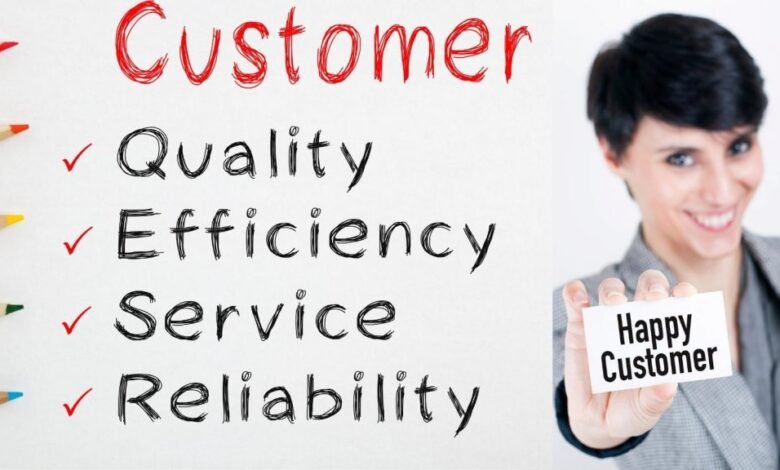Smarter Service Scheduling for Better Efficiency and Happy Customers

Service scheduling is an essential aspect of many businesses, ensuring that customer needs are met efficiently and effectively. It revolves around the strategic planning of service appointments, maximizing resource utilization while minimizing downtime. Effective scheduling not only enhances customer satisfaction but also improves operational productivity.
The landscape of service scheduling has evolved with technology, offering innovative tools that streamline the process. Automation and software solutions are now available to help businesses manage appointments, track service requests, and optimize workforce allocation. This shift allows companies to adapt quickly to changing demands and better serve their clients.
Understanding the best practices in service scheduling can make a significant difference in performance and customer retention. By implementing strategic scheduling methods, businesses can increase their efficiency and create a more organized workflow, ultimately leading to higher profits and customer loyalty.
Fundamentals of Service Scheduling
Service scheduling involves organizing tasks, resources, and personnel to enhance service delivery. Effective scheduling optimizes operations, minimizes downtime, and improves customer satisfaction.
Understanding Service Scheduling
Service scheduling is the process of allocating time slots for services or tasks, ensuring that resources are utilized efficiently. It involves evaluating demand and capacity to create a timetable that meets service needs.
This process can apply to various industries, such as healthcare, repair services, or transportation. By matching service providers with customer requests, businesses can streamline workflows and enhance productivity.
Key Components of Scheduling Systems
Several components are essential for effective scheduling systems. Key elements include:
- Resource Management: Identifying and allocating the right personnel and equipment.
- Time Management: Establishing optimal time slots for each service task.
- Customer Communication: Providing clients with clear schedules and updates.
Modern scheduling systems often incorporate software solutions that automate these components. This automation reduces human error and allows for real-time adjustments, increasing overall efficiency.
Importance of Efficient Scheduling
Efficient scheduling is crucial for maximizing operational performance. It directly impacts service quality and customer satisfaction.
Benefits include:
- Reduced Wait Times: Efficient allocation of services minimizes customer waiting periods.
- Improved Resource Utilization: Proper scheduling allows businesses to make the most of their available resources.
- Cost Savings: Streamlined operations can lead to lower operational costs and increased profitability.
Overall, effective service scheduling enhances a business’s ability to meet customer demands while optimizing internal processes.
Strategies and Best Practices
Effective service scheduling requires strategic approaches to ensure optimal performance, customer satisfaction, and efficient resource use. Key methods include optimizing resource allocation, using scheduling software, and managing customer expectations.
Optimizing Resource Allocation
To maximize efficiency, organizations should analyze their resource availability—staff, equipment, and materials. Creating a capacity plan helps assess current resources and predict future needs.
Consider the following steps for effective resource allocation:
- Assess Needs: Determine how many staff members and tools are required for each service.
- Prioritize Tasks: Rank tasks based on urgency and importance.
- Flexible Scheduling: Implement flexible shifts that adapt to fluctuating demand.
Utilizing these methods aids in minimizing downtime and enhancing productivity while ensuring that each task has adequate support.
Utilizing Software for Scheduling
Adopting advanced scheduling software can significantly enhance the scheduling process. Such tools offer features like real-time updates and automated reminders, which keep both employees and customers informed.
Key benefits of using scheduling software include:
- Centralized Management: All schedules are accessible in one place, reducing the risk of errors.
- Data Analytics: Many systems provide insights into peak times, enabling better future planning.
- Integration: These tools can often integrate with existing systems for seamless operation.
A proficient scheduling tool can streamline operations and improve overall service delivery.
Managing Customer Expectations
Clear communication plays a vital role in managing customer expectations. It’s imperative to keep customers informed about service availability, wait times, and potential delays.
Methods to effectively manage expectations include:
- Proactive Communication: Send notifications ahead of scheduled appointments.
- Set Realistic Timelines: Provide customers with accurate estimates and adhere to them.
- Feedback Mechanism: Encourage customer feedback to identify areas of improvement.
Employing these strategies fosters trust and improves customer satisfaction, leading to repeat business and positive reviews.



